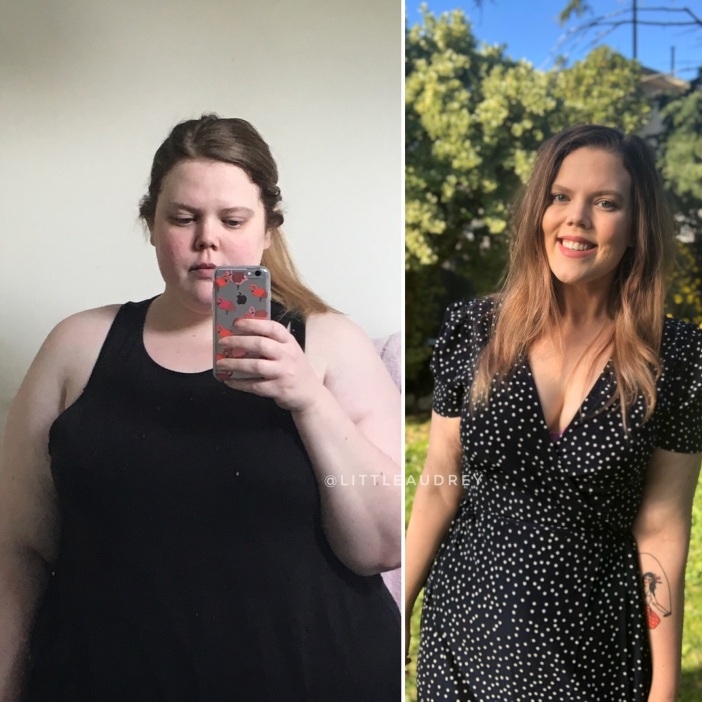I want people to know that it’s never too late. There’s a lot of stigma around weight loss surgery, that it’s the easy way out. For a long-time I believed that too. But at 167kgs there really is no easy way out. I was in my 20s and everyday life was hard. Harder than it should be at that age. My medical conditions were mounting – pre-diabetes, high blood pressure, aching joints. I hated the frequent visits to my doctor. Every time my GP would tell me I needed to lose weight, that I just wasn’t healthy. I hated hearing it. I knew it. And I’d tried. I think a lot of people assume that you aren’t trying or that you don’t know you’re overweight. I knew it. Anyone who is morbidly obese knows it.

The world just isn’t made for people my size and every day I was reminded that I just didn’t fit in. It’s in the simple, everyday things that most people take for granted that I felt it the most. The shame of having to squeeze into train seats on the morning commute, holding onto seatbelts in cars because they didn’t clip in, not being able to put on socks without it being a full-blown event. These limitations perpetuated what I already felt and I began limiting myself in all areas of my life.
By my late 20s I was merely existing. I was drowning in my body; ashamed, unhappy and unhealthy. Most days I felt defeated and I would turn to food for comfort. Mindlessly consuming in secret to try and fill an invisible hole, not really caring about what I was doing to my body. I could see exactly what my future was going to look like and one day I decided I wanted better.
Any big change is difficult, it’s uncomfortable and it’s confronting. But it’s also necessary. As humans we can’t grow without change. I eventually realised that asking for help wasn’t failure, the failure would have been if I continued to live as I was. I accepted a referral to a bariatric surgeon.
The vertical sleeve gastrectomy, where around 80% of your stomach is removed, isn’t a quick fix, it’s not a guaranteed fix at all. It simply limits how much you can eat at any one meal. The surgery didn’t change what I ate or how often I ate, it didn’t exercise for me and it didn’t mend my relationship with food. It was up to me to put in the effort to change my habits and to create a new way of living for myself. The surgery did however allow me the time and grace to form healthy habits away from food and, in time, heal my relationship with food. I began to care about my body, how I fuel it and how I treat it.
The weight loss journey I thought I was on became so much more than that. It really is about overall health – mental, physical and emotional. It’s also a continuous one. Right now, I’m enjoying breaking down the barriers I had placed on myself. Not focussing on what I can’t do but figuring out what I can do. Discovering who I can be beyond my body and living a life less limited.
Strangely, I’m probably more food focussed than ever but it’s in a much more mindful way. I love food and I’m no longer ashamed to admit that. I take photos of my food to show pride in what I eat, a lifetime away from those secret binges. Now, I not only understand how the food I eat impacts me and my body, but also the external implications of how I choose to fill my plate. I became plant based because I genuinely believe it’s the healthiest way of eating and I became vegan because I realised I couldn’t use someone else’s body to fuel my own. I’m now living in a way that aligns with my values.
I share my story and my food because I want to show others what has worked for me and what is possible. I want people to know that it’s never too late. You are never too far gone and you are always worthy of living a life that makes you feel good.
You can follow Kirsty on Instagram @littleaudrey Photo supplied.